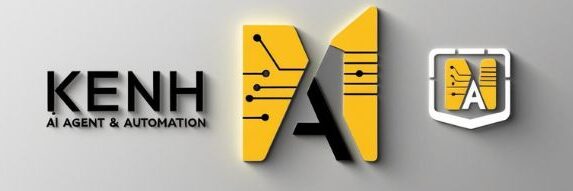How Small Teams Use AI Agents to Scale Operations
Introduction
AI is no longer just for tech giants. In 2025, small teams and startups are adopting AI agents to scale operations like never before—automating everything from customer support to content creation and project management.
This article dives into how lean teams are using agentic AI workflows to punch above their weight.
What is “How Small Teams Use AI Agents to Scale Operations”?
AI agents are autonomous programs that can reason, plan, and take action. For small teams, this means automating repetitive, multi-step tasks without needing an army of developers.
Why this matters:
Reduces hiring needs
Increases operational output
Shortens turnaround time on tasks
Key Components
🧠 Autonomous AI Agents
Built with LangChain, CrewAI, and AutoGPT
Capable of tool use, memory, and long-term planning
🔧 No-Code Integration
Use of tools like Zapier, Make, Flowise, and OpenPipe for non-developers
🗃️ Vector Search + RAG
Embedding knowledge in agents using Pinecone, Weaviate, and LlamaIndex
🧩 Modular Workflows
Breaking tasks into reusable blocks (e.g., email summarizer, lead qualifier)
Real-World Applications
✅ Task Automation
A 3-person marketing agency automates blog writing, SEO research, and image generation via AI agents.
✅ CRM and Lead Nurturing
AI reads inbound inquiries, qualifies leads, and sends personalized follow-up emails automatically.
✅ Support & Helpdesk
AI agents handle 80% of tier-1 tickets for startups without needing a full support team.
✅ Internal Operations
AI assistants summarize meeting notes, generate weekly reports, and update Notion dashboards.
Case Study: AI Agent for Customer Service
Company: 5-person SaaS startup
Problem: Overwhelmed by support requests but no budget to hire support staff
Solution:
Integrated ChatGPT-based agent with their support inbox
Used LangChain for routing and escalation logic
Deployed vector database for retrieving accurate past answers
Results:
70% ticket deflection within 2 weeks
Response time down from 12 hours to <1 hour
No new hires needed
Challenges and Considerations
⚠️ Initial Setup Time
Agents require initial time investment to fine-tune prompts, connect tools, and test edge cases
⚠️ Trust & Oversight
Mistakes made by unsupervised agents can damage reputation
Solution: Human-in-the-loop checkpoints for high-risk outputs
⚠️ Cost Management
API-heavy agents can be expensive.
Solution: Rate limits and caching strategies
Future Outlook
🔮 Personal Agent Assistants
Small teams will deploy agents for each team member:
e.g. a “Marketing Agent,” “PM Agent,” or “Finance Agent”
🔮 Multi-Agent Collaboration
Teams of AI agents will coordinate tasks together across workflows
🔮 Plug-and-Play AI Stacks
Platforms like CrewAI, AgentOps, and LangGraph will offer turnkey stacks tailored for small business needs
Conclusion
AI agents give small teams superpowers—automating time-consuming tasks, improving responsiveness, and allowing scale without bloat. In 2025, success isn’t about team size—it’s about workflow intelligence.
🚀 Want to Master AI Tools?
Join our recommended AI platform and start building AI agents that scale your business—without writing code.
